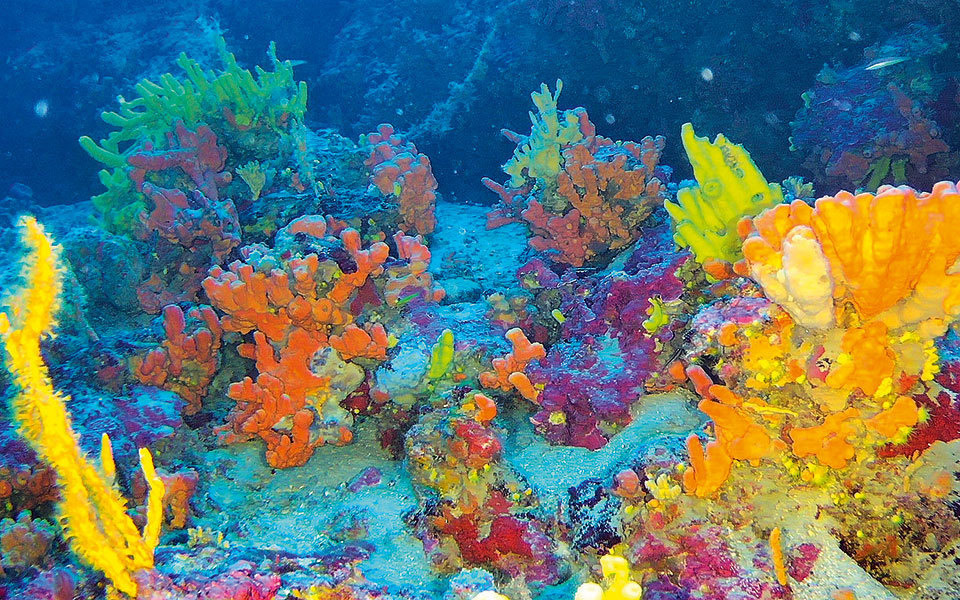A lifetime is not enough to experience all the beauty of this world. So many generations have passed through this land and it still hasn’t lost its ability to surprise us. And yet just a few decades of intensive exploitation are enough to destroy its unique and undiscovered beauty.
When you mention coral, no-one’s mind goes to the Aegean sea. And yet, at a depth of 70-250 meters the sea hosts beautiful coral habitats. “Their beauty is breath-taking. Even the experts were surprised to find this unique ecosystem,” says Thodoris Tsimpidis, Director of the Archipelagos Institute, which has started a pilot program to record and protect coral habitats in the Aegean.
The images brought to the surface by the remote-operated deep-sea vessel (ROV) from depths of 90-98 meters look almost too beautiful to be true.
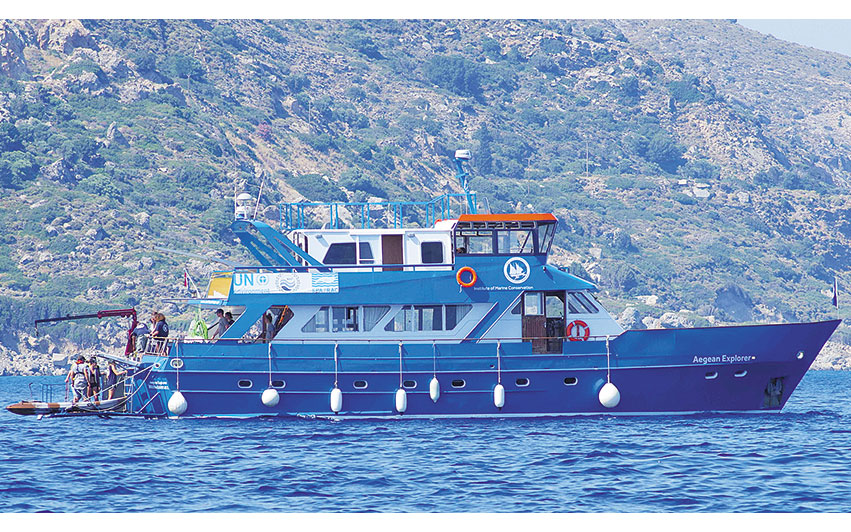
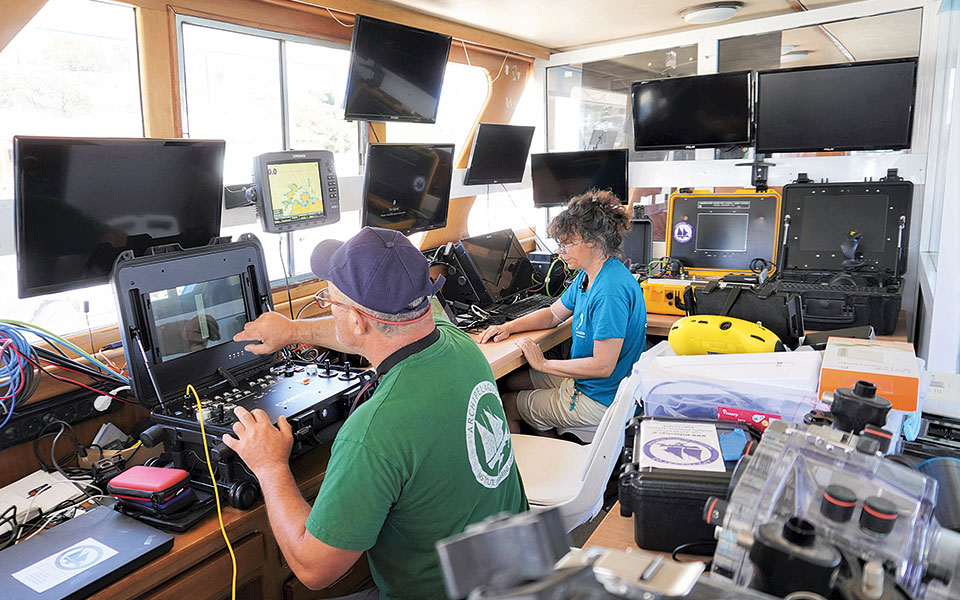
“The Mediterranean coral habitats are colonies formed by coral and red algae, which fishermen here call “traganes,” and other components. Apart from their beauty, they play a substantial role in the reproduction of marine species, and show much greater biodiversity than other locations. Sea life – and fishing – depend on the existence of these habitats. It is estimated that they host 1,800 marine species, among them any commercially exploited species like lobster and sea bream,” says Anastasia Miliou, Research Director of Archipelagos. If sea meadows are the main productive ecosystems to a depth of 50 meters, going deeper we encounter the coral formations.
As Miliou explains, the Aegean coral colonies are found at greater depths than their western Mediterranean counterparts, as the waters are clearer and light travels deeper. “For this reason, the Aegean’s coral colonies, which thrive in the ocean’s twilight zone, are better protected from changes in temperature, as at those depths the temperature changes little, and gradually,” she notes. The age of the coral formations in the Aegean is estimated at 7,500 years, while their growth is extremely slow, not exceeding a millimeter a year. This is beauty that comes into being at a glacial pace, and its destruction – should it happen – would be irreversible.
The dangers
It would only take the passage of heavy fishing equipment over the corals to destroy the natural work of centuries in the space of a few seconds. Abandoned nets can also cause serious damage, while dynamite – which although illegal is still used by some – can bring total destruction.
“Coralligenous ecosystems survive only through luck. Based on Greek, European and international law they are protected areas. However in Greece, and in other parts of the Mediterranean this does not happen in practice, simply because no one knows where these vulnerable ecosystems are located,” notes Miliou. “They have not been mapped, so that the use of heavy fishing equipment and other destructive practices can be effectively banned.”
Already other habitats rich in biodiversity, such as red algae, have been destroyed to a great extent by overfishing, which savagely depletes sources of natural wealth.
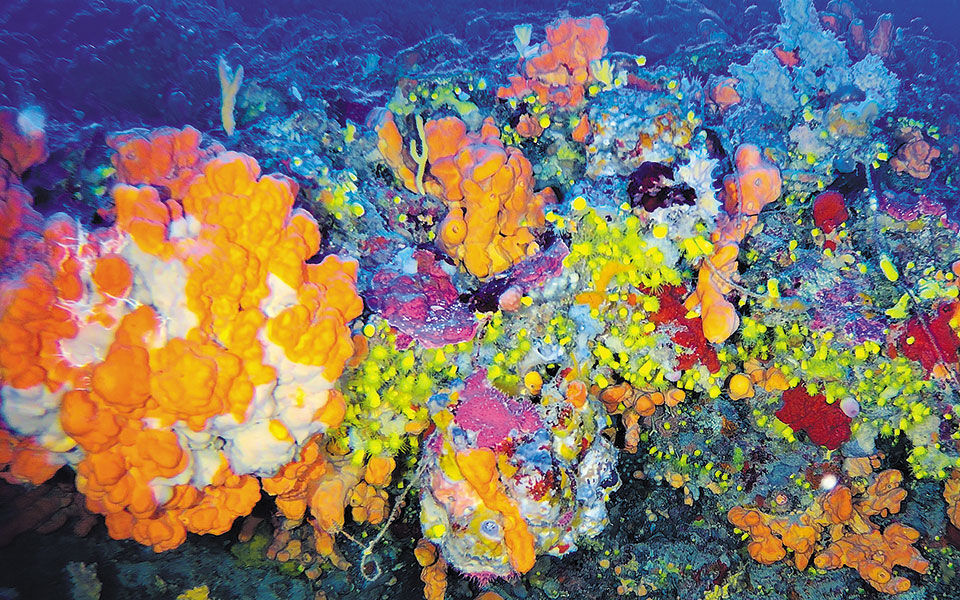
Pilot mapping program
“In the deep waters of the Mediterranean, in particular the Aegean Sea, there is a secret world we risk losing before we even discover it. Coralligenous habitats are some of the richest, most complex ecosystems in the Mediterranean, but at the same time perhaps the least studied,” notes the Archipelagos Institute. In collaboration with the United Nations Regional Action Center for the Mediterranean (UNEP/MAP SPA/RAC) and the Department of Biology at the University of Essex in the UK, and with the support of the French foundation Pure Ocean, Archipelago is carrying out a program entitled “Protecting Aegean Coralligene.”
Using the Institute’s research vessel “Aegan Explorer,” which is equipped with the latest technology have started mapping the coral habitats, aiming to develop a new, relatively low-cost but scientifically reliable approach that uses state of the art research tools (ROV, multibeam sonar, biomass scanner, CTD).
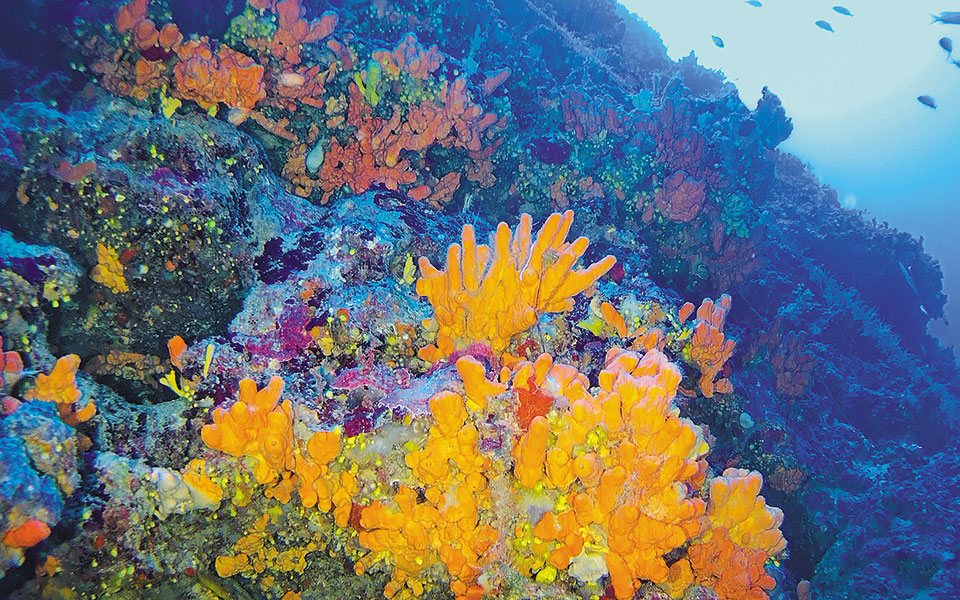
“Our aim is to be able to apply it using small research vessels across the Mediterranean, contributing to the most effective research and conservation of these vital yet vulnerable marine habitats. At the same time, high-definition videos will be collected from impressive live corals but also from destroyed ones, with the aim of raising awareness within the public and the authorities in Greece and Europe. Technology helps us a lot in our research,” says Tsimpidis. “Going down there we see unbelievable beauty, but also underwater rubbish dumps. The sea can no longer react. It can’t be the carpet under which we sweep our failings,” he stresses.
The pilot program will begin in the areas of Fournoi, Amorgos, Kinaros and Donoussa.
“This is a new field of action for Archipelagos. We feel a great sense of responsibility to try and protect these particularly important ecosystems, on the one hand from the threat of intensifying human activity, and on the other from the impacts of climate change, as we have already recorded unusually high temperatures at great depths,” says Miliou.
This is the real nub of the problem. These are not a multitude of unconnected problems, large or small, which can be tackled with discrete actions. It is a single environmental crisis, which demands that the ship changes its course.
This article was previously published in Greek at kathimerini.gr.

